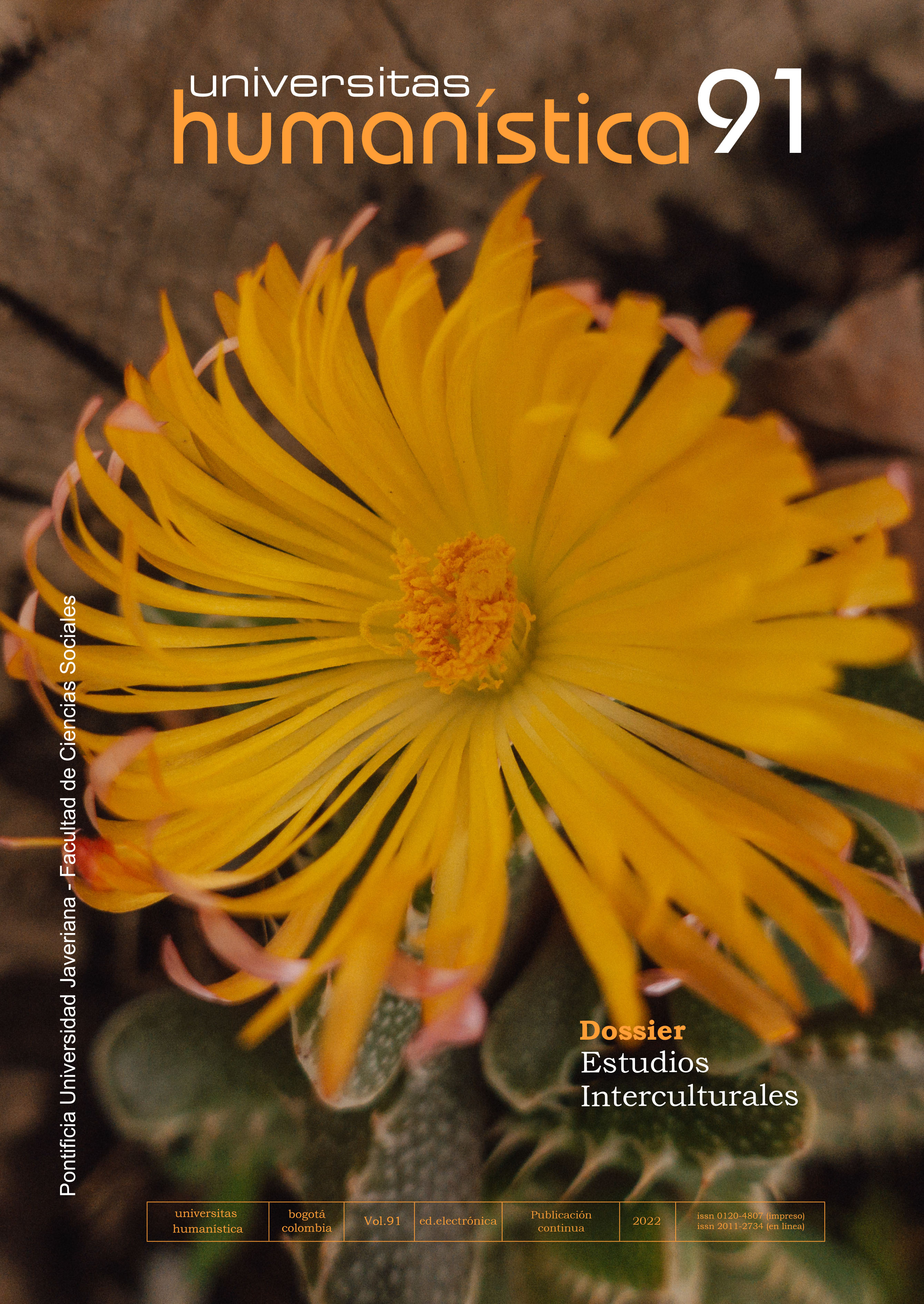Challenges and Alternatives to the Neutralization of Subjectivity in the Culture of Modernity
##plugins.themes.bootstrap3.article.details##
The purpose of this article is to analyze the processes of knowledge construction in contemporary society. Two axes of reflection are considered: first, the development of knowledge perspectives with respect to the western cultural matrix, which recognize that the interpretation of reality changes according to social dynamics. These seek to broaden the layers of complexity in the understanding of the social. Second, the challenges derived from the neutralization of subjectivity and the annulment of experience, exacerbated in the digital era of the 21st century, and the emergence of more reflexive social forms of knowledge construction. These include new collective subjects and the results of debates around decolonial, environmental and gender issues. The text makes a brief tour through the historical context and the development of the current theoretical discussion on the subject. Finally, the importance of the discussion on knowledge construction mechanisms that break with the cultural hegemony of neutralization of the intersubjective experience becomes evident. On the contrary, it is proposed that it should be retaken as a motor of culture.
conocimiento, experiencias, pensamiento decolonial, subjetividades, saberes tradicionalesknowledge, experiences, decolonial thought, subjectivities, traditional knowledgeconhecimento, experiência, pensamento decolonial, subjetividades, saberes tradicionais
Berger, P., e Luckmann, T. (1966). The Problem of the Sociology of Knowledge. Em P. Berger e T. Luckmann, The Social Construction of Reality: A Treatise in the Sociology of Knowledge (pp. 13-30). Penguin Books.
Bloch, M. (2014). Apologia da história ou o ofício do historiador. Zahar.
Burke, P. (2003). Uma história social do conhecimento I: de Gutemberg a Diderot. Zahar.
Burke, P. (2014). Uma história social do conhecimento II: da Enciclopédia à Wikipédia. Zahar.
Canclini, N. G. (2019). Culturas híbridas. EDUSP.
Cunha, M. C. (2007). Relações e dissensões entre saberes tradicionais e saber científico. Revista USP, (75), 76-84. https://doi.org/10.11606/issn.2316-9036.v0i75p76-84
Erik-Mai, J. (2016). Marginalization and Exclusion: Unraveling Systemic Bias of Classification. Knowledge Organization, (43), 324-330. http://jenserikmai.info/Papers/2016_festschrift.pdf
Gross, M. (2012). “Objective Culture” and the Development of Nonknowledge: Georg Simmel and the Reverse Side of Knowing. Cultural Sociology, 6(4), 422-437. https://doi.org/10.1177/1749975512445431
Gutiérrez, A. G. (2013). La organización del conocimiento desde la perspectiva. Perspectivas em Ciencia da Informação, 18(4), 93-111. https://doi.org/10.1590/S1413-99362013000400007
Hui, Y. (2020). Tecnodiversidade. Ubu Editora.
Jenkins, H. (2009). Cultura da convergência. Aleph.
Kopenawa, D., e Albert, B. (2015). A queda do céu. Schwarzc. https://leiaarqueologia.files.wordpress.com/2017/08/davi_kopenawa___bruce_albert_-_a_queda_do_c_u.pdf
Krenak, A. (2020). A vida não é útil: ideias para salvar a humanidade. Penguin Random House.
Latour, B. (2000). Redes que a razão desconhece: laboratórios, bibliotecas, coleções. Em C. J. Marc Baratin, O poder das Bibliotecas. A memória dos livros no Ocidente (pp. 21-44). UFRJ.
Latour, B. (2020). Onde aterrar? – Como se orientar politicamente no Antropoceno. Bazar do tempo.
Morozov, E. (2018). Big Tech: a ascensão dos dados e a morte da política. Ubu Editora.
Ortiz, R. (2015). A polissemia das palavras. Em R. Ortiz, Universalismo e diversidade (pp. 13-35). Boitempo.
Regattieri, L. L., e Antuon, H. (2018). Algoritmização da vida e organização da informação: Considerações sobre a tecnicidade no algoritmo a partir de Gilbert Simondon. Liinc Em Revista, 14(2). https://doi.org/10.18617/liinc.v14i2.4304
Ribeiro, G. L. (2014). Outras globalizações: cosmopolíticas pós-imperialistas. EDUERJ.
Schutz, A. (1946). The Well-Informed Citizen: An Essay on the Social Distribution of Knowledge. Social Research, 13(4), 463-478.
Schutz, A., e Luckmann, T. (1973). Concerning the Structure of Negative Knowledge. Em A. Schutz e T. Luckmann, The Structures of the Life-World (v. 1., pp. 163-178). Northwestern University Press.
Sevcenko, N. (2012). A corrida para o século XXI: no loop da montanha russa. Companhia das Letras.
Tálamo, M. de F. G. M., e Smit, J. W. (2007). Ciência da informação: pensamento informacional e integração disciplinar. Brazilian Journal of Information Science, 1(1), 33-57. https://doi.org/10.36311/1981-1640.2007.v1n1.03.p33
Wersig, G. (1991). Information Science: The Study of Postmodern Knowledge Usage. Information Processing and Management, 29(2), 229-239. https://doi.org/10.1016/0306-4573(93)90006-Y

This work is licensed under a Creative Commons Attribution 4.0 International License.


